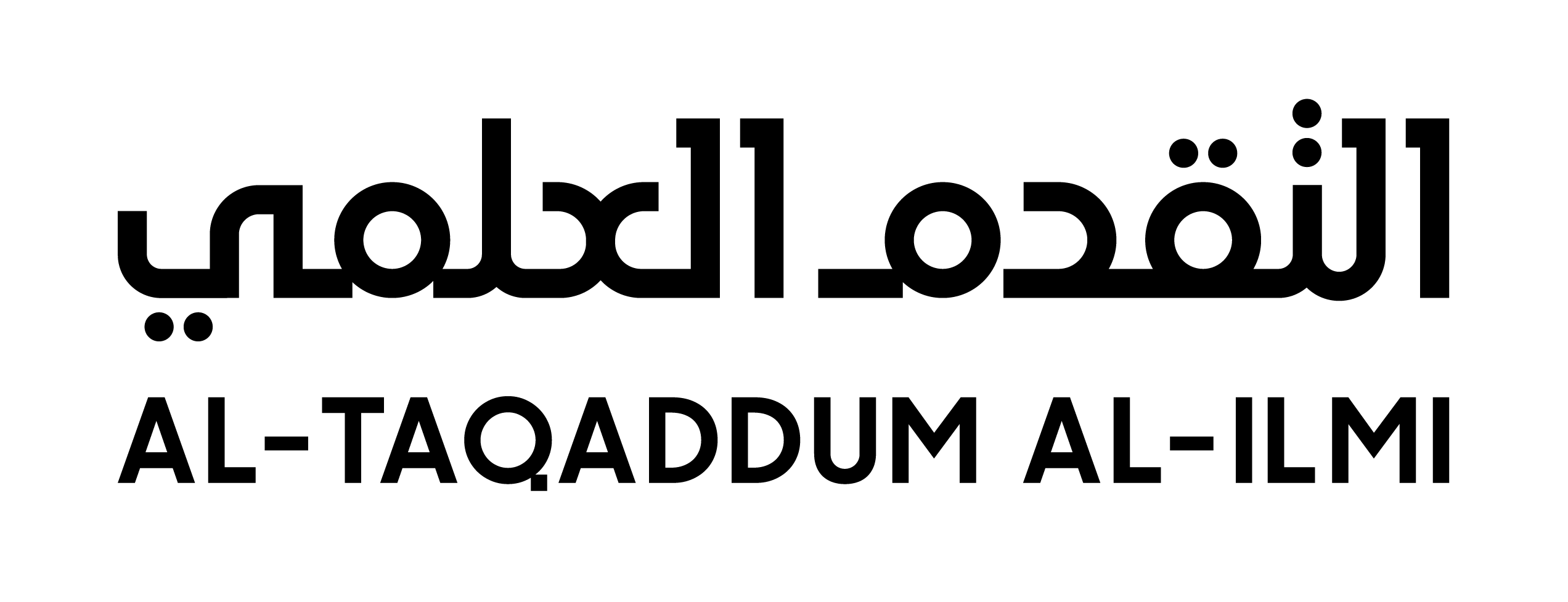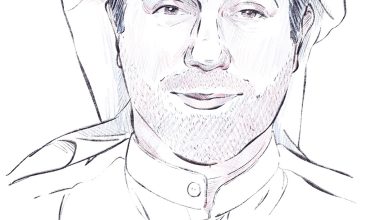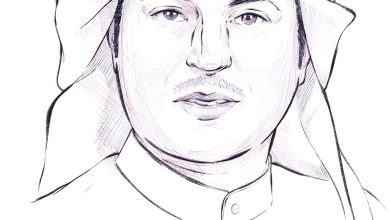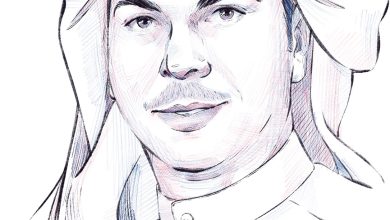Abdullah Alazemi
Digging for Gold: Uncovering Ancient Mathematical Challenges Using Modern Techniques
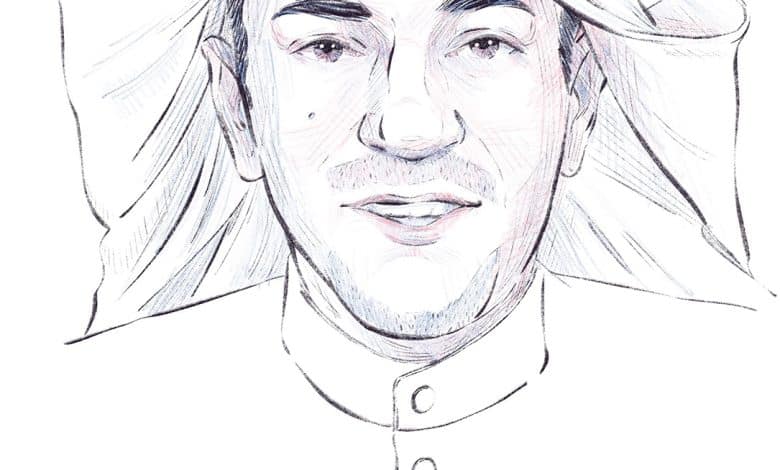
إن اســتـحـضـار الـــدراســات الــعـــتـيــقـة لمـجال الهندسـة في الرياضيات إلى عالمنا المعاصر يحتاج إلى منـظور مـختلف – إذ يـتحقق ذلك من خلال دمج نظـريات الرياضيات التقليدية في علوم الحوسبة Computational Science لتسليط ضوء جديد على المـشكلات الـقـديمة. وهـذا بالضـبط هو ما يـسعى عبدالله العـازمي إلى تحـقيقه.
As the Head of the Mathematics Department and Associate Professor at the College of Science at Kuwait University, Alazemi gained his bachelor’s at Kuwait University in 2000. He was granted a scholarship from Kuwait University and travelled to America to complete both his master’s and doctorate at Colorado State University in 2004 and 2007, respectively. His doctorate covered the classification of discrete structures — combinatorial objects, including graphs and linear spaces. Within the last few years, he has produced nearly 30 different research papers covering topics at the intersection of pure and applied mathematics. From main eigenvalues of chain graphs to the classification of triangle-free symmetric 223 configurations, his research has had a significant impact on mathematician’s understanding of these advanced concepts.
Alazemi has now been awarded the Kuwait Foundation for the Advancement of Sciences (KFAS) Jaber Al-Ahmad Prize for Young Researchers for 2021, in the field of Natural Sciences and Mathematics, in recognition of his contributions to research in Kuwait. Established in 1988, The Prize for Young Researchers was founded by His Highness the late Amir of the State of Kuwait Sheikh Jaber-Al-Ahmad-Jaber Al-Sabah, with the goal of recognising the accomplishments of younger generations of Kuwaiti scientists and researchers.
“Receiving this award was a surprise and an honor,” said Alazemi. “Often, pure mathematics is easier to overlook than other more applied subjects, mainly because it’s harder to see the connection to the real world. I am very happy that I can highlight a relatively unusual subject in this way.”
Alazemi works across both pure and applied mathematics and has always particularly enjoyed working with combinatorial objects. The study of geometry can be traced back over 5,000 years, and while it might be easy to assume that by now, we would know everything there is to know, that’s not actually the case. “We’re now able to study things from a different angle, and with a different understanding,” said Alazemi. Mathematicians have been studying combinatorial objects for around 300 years, the practice fell out of favor until around 25 years ago. But with new investigative techniques and tools comes the opportunity to improve our understanding.
“It’s not possible to study larger objects by hand, but now we can use algorithms from computer science combined with the theory of mathematics,” Alazemi said. “But it’s challenging to find someone who can complete both the mathematical theory, and the application with computer science.”
لتــحـقــيـق ذلك، يـعمـل الـعــازمي بـشـكـل وثيـق مع عدد من علماء الرياضيات والباحثين، ومن بـيـنهم في الفترة الأخيرة ميليكا أنديليتش Milica Andelić وأنتون بيتن Anton Betten، وكلاهـما أسـتـاذ مــشـارك في قـسم الـرياضـيـات بـجـامـعـة الكـويت.
“Mathematical papers and research are particularly challenging to produce because the proof of how we achieved our results is as important — if not more — than the result itself,” he said. “Once we’ve found a problem, we have to show how and why the result is true. And this result needs to be true forever, and for whatever scenario.”
One question that is always on Alazemi’s mind is whether there is a combinatorial object with an infinite family of objects. “To research this, we take one object from classical geometry, then engineer and destruct the object before using the axioms that the object already has to start rebuilding it,” he said. “We’re told that the same object should, in theory, be produced again. But often, another object also appears.”
Then, he needs to ask himself if this is a coincidence, “And of course, nothing in mathematics is truly coincidental,” Alazemi said. “That means the procedure we use to rebuild one object can also be used to build another. In this way, we can discover objects that no one has seen before. In a way, it’s like digging for gold.” While the results of these investigations can be extremely exciting, on its own it doesn’t satisfy the principles of mathematical research. What’s more important is how the result was reached and if it can be replicated.
Mathematicians also need to confirm that no one else has discovered this object before them. “This is where international collaboration is particularly important in the field of Applied Mathematics,” said Alazemi. That’s because if mathematicians don’t share their discoveries, you’ll get excited about your research, only to have someone tell you the same result was discovered by someone else 10 years ago.
Staying up to date with what other mathematicians are working on is essential, and to that end Alazemi will be attending conferences in Turkey, Korea, Europe, and the United States over the next few years. This is combined with collaborations with a wide range of other institutions across India, Iran, the United States, Germany, and more.
Alazemi’s current research project is entitled ‘Classification of Combinatorial Objects’ and involves creating a database and classification tree so that any mathematician or researcher can easily check to see if something they’re researching has already been discovered previously or not. He is also coming to the end of his four-year long Head of Deparment position, after which he looks forward to dedicating more time to his family, students, and of course, his research. This means that the KFAS award comes at the perfect time. His main research interests are spectral graph theory, (linear) algebra, and combinatorial objects, so we can surely expect more publications across these fields in the coming years.
“While our mathematical research means a lot to the scientific world, they aren’t always applicable to the outside world. I am so pleased to receive this award, and I didn’t see it coming at all,” said Alazemi. “I would like to extend my sincere thanks to everyone involved in awarding this prize, from KFAS, to the judging committees, to the friends and colleagues who encouraged me to apply.”
By Emma Stenhouse
